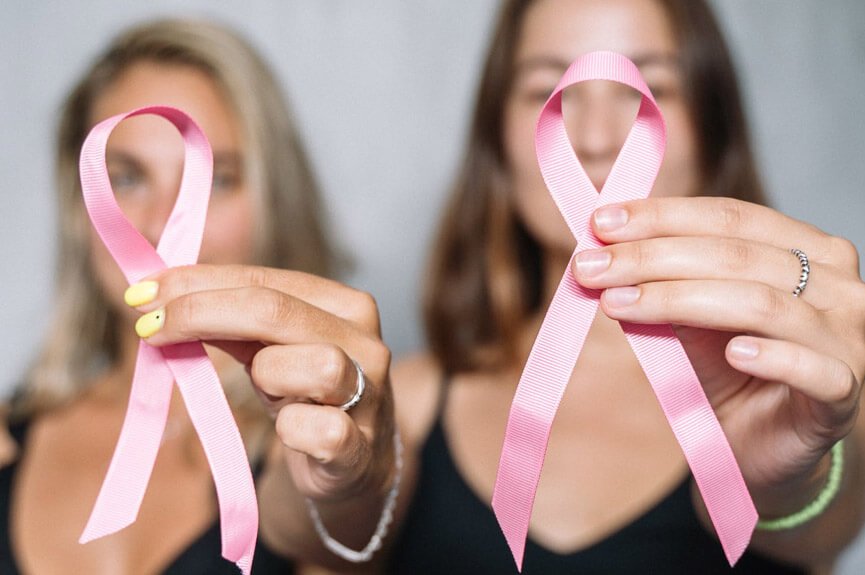According to the American Cancer Society, Breast cancer is the leading cause of new cancer cases in the United States —and the second-leading cause of cancer-related deaths in women in the U.S.
Thankfully, medical cannabis – which THC and CBD are chief ingredients – have been used for several years for cancer-related concerns. While the battle to legalize medical marijuana has suffered setbacks at the federal level and in some states, presently, marijuana is currently approved for cancer patients across the 33 medical marijuana-friendly states.
In fact, two marijuana-based drugs have been approved by the FDA to manage vomiting and nausea in cancer patients under chemotherapy treatments.
Although based on small trials and animal data, research reports show that marijuana compounds like CBD contain antiemetic properties (against vomiting and nausea) as well as antitumor and anti-pain. More research is advised to make more substantial claims.
There is limited research on CBD and cancer. But there are still a few worthy mentions. The National Cancer Institute reported research that suggests CBD’s potential in slowing down the growth and cuts down on the risk of certain forms of cancer, like breast cancer. . with the limitations of this research, experts are waiting for more research results to make more substantive claims and better understand how the CBD compound can help cancerous patients.
It is however noteworthy that marijuana products may be better integrated into a treatment plan, than being used as a stand-alone form of cancer treatment.
Using CBD for cancer
Besides oil, CBD comes in different other forms, including capsules, edibles, creams, oils, sprays, and tinctures.
Cancer patients can use CBD orally and also apply the oil on the skin where radiation was performed to help manage discomfort and dryness.
Since anti-estrogen is often used to treat breast cancer, CBD extract mixed with carrier oils like coconut oil can come in handy as a lubricant for sexual intercourse.
It is however noteworthy that smoking or vaping is not safe for patients undergoing breast cancer treatment, such treatments may affect lung and immunity functions as inhaling smoke can further stress your always weary lungs.
If you must consume CBD, do well to invest in medical-grade products.
CBD and Reactions
Study reveals that many patients have opted for CBD in managing their cancer symptoms but without telling their doctors. What they do not know is that marijuana could interact with other substances and cause a range of adverse reactions.
First, users whose system has been compromised by cancer treatment may be careful with marijuana as illegally purchased weed on the street may have dangerous contaminants.
CBD’s non-psychoactive nature is no longer news. However, when used with certain drugs, there’s a high chance of an adverse reaction. So, if you wish to try out CBD for chemotherapy side effects or pain relief, do well to discuss with your physician about the potential benefits, risks, and potentials
That said, here are some commonly reported side effects of CBD.
- Diarrhea
- Dry mouth
- Fatigue and drowsiness
- Loss of appetite
Research is yet to identify any significant potential risks associated with CBD oil. The records however suggest CBD is safe and well-tolerated.
Warnings and Precautions
However, here are some precautions
- Persons with severe heart disease and those who recently suffered a heart attack
- Medications like warfarin should be avoided when using CBD
- Check your CBD products for additional ingredients that may cause your allergy. Coconut oil is a common example
- If you experience side effects like severe vomiting, discontinue usage
- Remember there might be trace THC amounts in your CBD product that may add up to ruin your drug test.
200mg of oral CBD taken daily has been reported as safe for use even for as long as 13 weeks. However, you may notice some mild side effects such as dry mouth, drowsiness, hypotension (low blood pressure), and light-headedness. Do not fret, you may just have to reduce your dosage or take a break.
While there is no supportive research, CBD may not be recommended for expectant or breastfeeding mothers - and kids too. Except on expert prescription.
If you have any liver-related concerns or Parkinson's disease, do well to use lower doses.
WRAP UP
The role of CBD as a direct treatment for breast cancer has not been fully established. Nonetheless, some patients have used it in the management of side effects caused by breast cancer treatments.
Also, CBD may not yet in itself be an absolute alternative treatment, but it could be tried if other drugs fail.
In any case, if you have decided to try out CBD, you should notify your doctor of your move, so you are sure to get expert advice.
In addition to this, be sure of where your products are from. Ensure your supplier is trusted.

